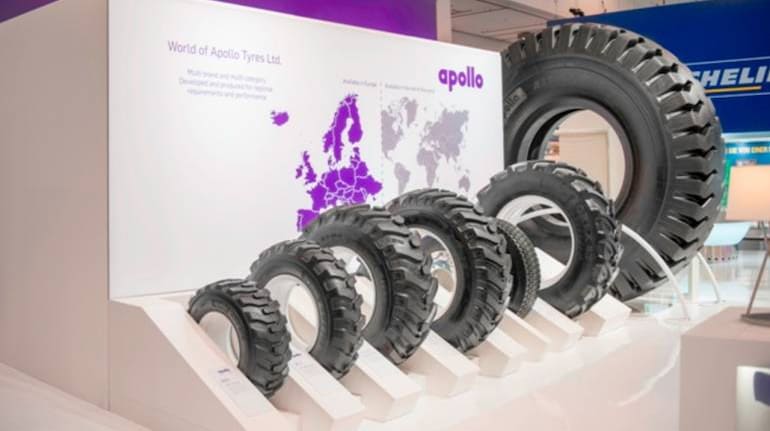
Apollo Tyres, India’s second-largest tyre maker, will cut down its capital expenditure (capex) and defer the expansion of new production capacity as COVID-19-induced slowdown starts to force companies to redraw their strategies.
Apollo joins a growing list of automotive companies which are either planning to cut down their capex or have already revised their spending plans ahead of announcing the March quarter financial numbers.
Mahindra & Mahindra, Bajaj Auto, Hero MotoCorp, Honda Motorcycle and Scooter India, Mahindra CIE have either put a freeze on the capex or started trimming them, approving only priority spends.
Apollo Tyres lined up a capex of Rs 1,400-1,500 crore for FY21 - already scaled down from Rs 1,700-1,800 crore decided in FY20. A further scaling down will take place in the coming period.
Satish Sharma, the whole time director and president (Asia Pacific, Middle East and Africa) - Apollo Tyres, said, “We will also be reducing capex. There is no point in continuing with it as there is no demand in the system. We are working out on what should be the reworked capex. We have been looking at reducing capex almost every day and the number keeps shifting. It also depends on how much we are able to cut, what orders have been placed.”
The majority of FY20’s capex of Rs 2,400 crore was spent on setting up a new greenfield plant in Andhra Pradesh, its fourth plant in the southern states and seventh overall. This plant, supposed to come up by the end of 2020, was scheduled to see a ramp up in production before reaching full capacity by 2023.
“The whole capex for FY21 was for the Andhra Pradesh plant. For the first phase, by and large, the capex is already done. As and when the plant opens may be we will take a month or two to start making the first products out of that plant. But to expand to a particular capacity, that’s what we will push it (further) by a little bit,” added Sharma.
As per estimates, Apollo has the lion’s share of the commercial vehicle and passenger vehicle tyre market especially in the OEM segment. The one-third of the OE supplies to the CV segment and nearly one-fourth of the OE supplies to the PV segment are controlled by Apollo Tyres.
Given that the CV demand is expected to be low in the coming months as existing truck and bus operators would look to sweat their assets more in light of uncertainty of the slowdown, the demand for OE tyres would also thus remain subdued. However, some pent up demand is expected to shore up sales.
As of now, only one of the four India plants of Apollo Tyres in Kerala that produces off-highway tyres has started fresh production.
“I don’t see revival in demand from the original equipment manufacturers (OEM) being strong. Demand from OEMs will be lower than last year. On the aftermarket side, the commercial, infrastructure and farming-led sector, there will be a better revival as opposed to a passenger vehicle segment,” added Sharma.

Discover the latest business news, Sensex, and Nifty updates. Obtain Personal Finance insights, tax queries, and expert opinions on Moneycontrol or download the Moneycontrol App to stay updated!